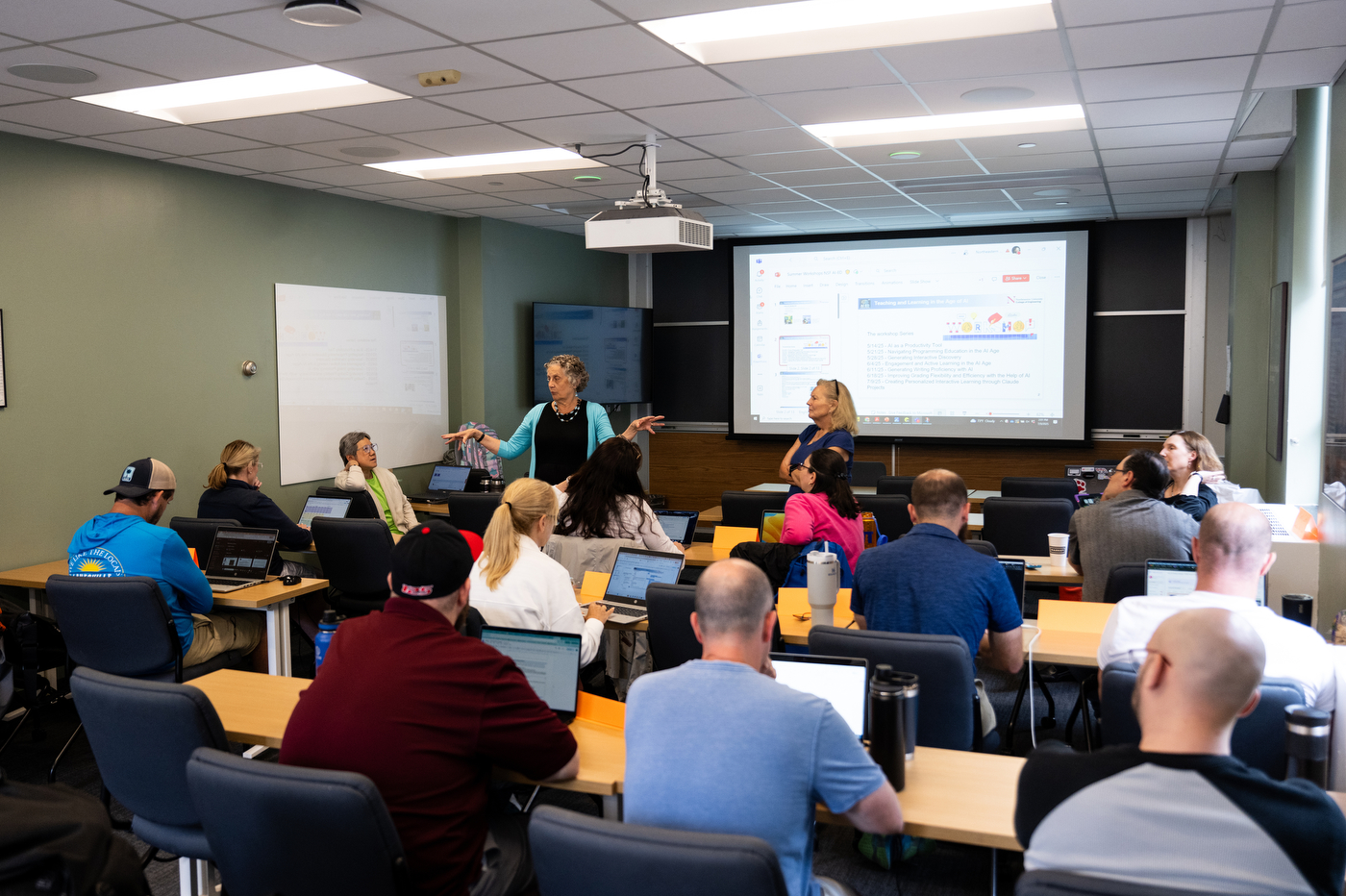Imagine a classroom where artificial intelligence (AI) is not just a futuristic concept but a daily tool that enhances learning experiences. Thanks to a groundbreaking initiative by Northeastern University, this vision is becoming a reality for high school educators in Massachusetts. Supported by the National Science Foundation, this program is designed to empower STEM teachers with the skills needed to seamlessly integrate AI into their classrooms.
Building a Community of Learning
At the heart of this initiative is the creation of a professional learning community where teachers can exchange ideas, share experiences, and support each other in the journey of equitable AI integration. This collaborative environment fosters a sense of camaraderie among educators, as they navigate the evolving landscape of AI in education together.
"The goal is to create a supportive network where teachers feel empowered to explore AI tools and strategies, ensuring that every student benefits from these advancements," said Dr. Emily Chen, a lead researcher at Northeastern University.
Navigating Challenges with Care
While the potential benefits of AI in education are immense, the journey is not without its challenges. Inconsistent policies, digital equity issues, and concerns about over-reliance on technology are some of the hurdles educators face. Teachers emphasize the irreplaceable value of face-to-face teaching and the need for responsible AI use, ensuring that technology complements rather than replaces human interaction.
A Balanced Approach to AI Integration
Educators are keenly aware of the importance of maintaining a balanced approach to AI integration. By leveraging AI tools to enhance personalized learning and provide real-time feedback, teachers can cater to the unique needs of each student. However, they remain committed to preserving the human touch that is essential for fostering meaningful connections and promoting holistic development.
As this initiative unfolds, it serves as a beacon of hope for educators and students alike. By equipping teachers with the skills to harness AI responsibly, Northeastern University is paving the way for a future where technology and human interaction coexist harmoniously in the classroom.
Originally published at https://news.northeastern.edu/2025/08/01/ai-in-high-school-classrooms/
ResearchWize Editorial Insight
How can we ensure that technology enhances rather than overshadows the human connections at the heart of education?
The article "Empowering Educators: AI in High School Classrooms" is a beacon for both students and researchers as it highlights a pivotal shift in educational practices. By focusing on the integration of AI into high school classrooms, it underscores the potential of technology to revolutionize learning experiences. For students, this initiative promises a more personalized and engaging educational journey, where AI tools can cater to individual learning styles and provide immediate feedback. For researchers, it opens new avenues to explore the impacts of AI on educational outcomes and the dynamics of teacher-student interactions.
The initiative by Northeastern University, supported by the National Science Foundation, is particularly significant as it emphasizes the creation of a professional learning community. This community is not just about sharing AI tools but about fostering a supportive network where teachers can collaboratively navigate the challenges and opportunities presented by AI. This approach is crucial for ensuring that AI integration is equitable and that all students benefit from technological advancements.
Moreover, the article does not shy away from addressing the challenges that come with AI integration, such as digital equity issues and the risk of over-reliance on technology. It calls for a balanced approach, where AI serves as a complement to, rather than a replacement for, the invaluable human elements of teaching. This perspective is vital for maintaining the integrity of educational experiences and ensuring that technology enhances rather than detracts from the teacher-student relationship.
In essence, the article is a call to action for educators, students, and researchers to embrace AI with a thoughtful and balanced mindset. It encourages us to envision a future where technology and human interaction coexist harmoniously, ultimately enriching the educational landscape.
Looking Ahead
What if education could evolve into a tapestry where each thread, whether human or artificial, weaves together to create a more vibrant and inclusive learning environment?
Teachers will likely continue to play a pivotal role, acting as guides who help students navigate the complexities of AI. They can facilitate project-based learning, where students collaborate on AI-driven projects that address community challenges, fostering a sense of purpose and connection. Through such projects, students learn to appreciate diverse perspectives, work as a team, and develop empathy, skills that are just as crucial as technical proficiency.
Moreover, AI can be harnessed to support inclusion, offering tools that adapt to diverse learning needs and styles. With AI, educators can tailor lessons to accommodate different abilities, ensuring that every student has the opportunity to succeed. This personalized approach can help break down barriers and create a more equitable educational experience.
As we embrace these possibilities, it's essential to maintain a focus on the emotional side of schooling. Technology should enhance, not replace, the warmth and support that comes from human interaction. Teachers, students, and AI can form a triad of learning, where each enhances the other, creating an environment rich in understanding and growth.
In the future, the classroom could become a garden where AI is the sunlight, nurturing the seeds of curiosity and compassion that teachers plant in their students. By tending to this garden with care and balance, we can cultivate a future where education flourishes in harmony with technology.
Related Articles
- Best AI PDF Summarizers 2025 – Top 11 Tools for Quick Summaries
- How One University Library Plans to Cut Through the AI Hype
- Artificial intelligence in education: A systematic literature review
📌 Take the Next Step with ResearchWize
Want to supercharge your studying with AI? Install the ResearchWize browser extension today and unlock powerful tools for summaries, citations, and research organization.
Not sure yet? Learn more about how ResearchWize helps students succeed.

